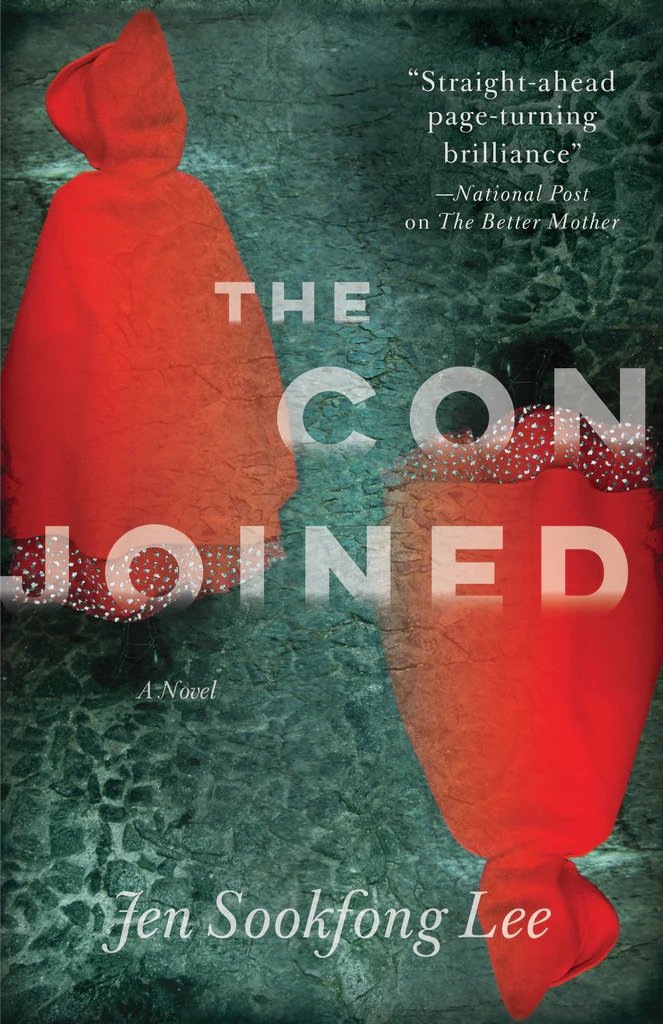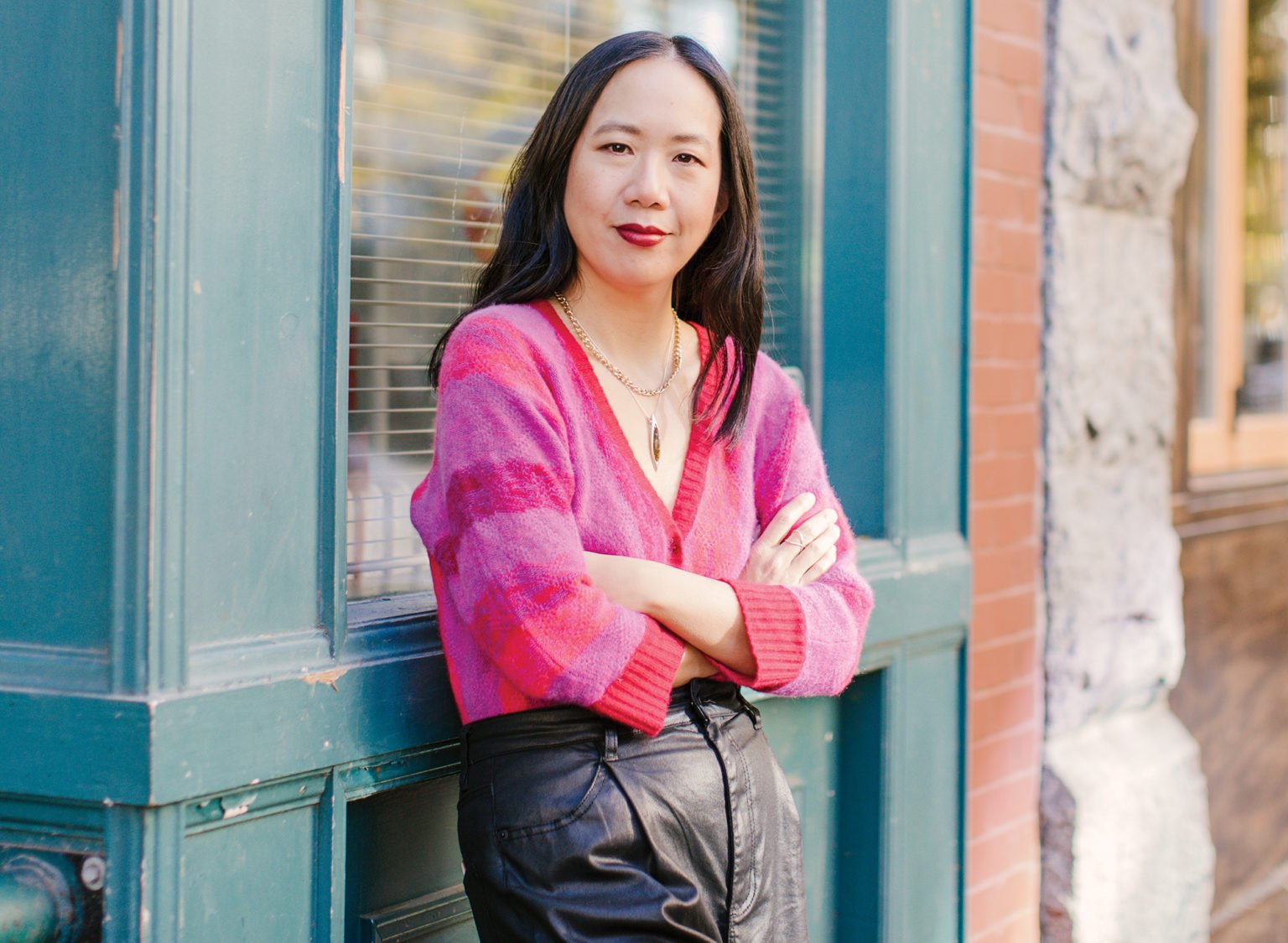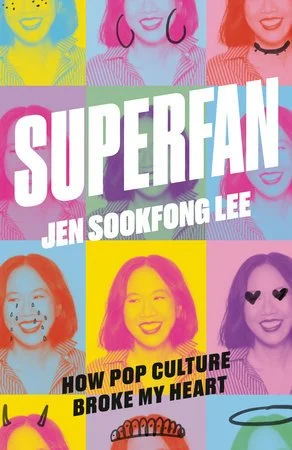From issue 2.3 March 2023 of Girls to the Front!
A Q&A with author Jen Sookfong Lee
Jen Sookfong Lee is the very prolific author of three literary novels, a YA novel, three childrens books, an ECW pop classic on My Own Private Idaho, a poetry collection, she’s edited two books of essays, and, most recently, she’s authored the already hugely popular memoir in essays, Superfan: How Pop Culture Broke My Heart (McClelland & Stewart, 2023). A familiar voice on radio and podcasts, Jen was a columnist for CBC Radio One’s On the Coast, All Points West, and The Next Chapter for many years and was also a frequent co-host of the Studio One Book Club. She also taught fiction at The Writers’ Studio Online at Simon Fraser University for six years. Currently, she co-hosts the literary podcast, Can’t Lit, with Dina Del Bucchia and acquires and edits for ECW Press.
Ok, first, I have to admit, I’m a bit intimidated doing this Q&A with you. You’ve pretty much done it all! Maybe I’ll focus on your fiction here—your first two novels were published with a big publisher, Knopf, and your third was with an independent press, ECW. What differences did you notice between these experiences, maybe in terms of pressure and/or freedom during the writing/editing process and then in terms of publicity and the attention the book received once it was published?
That’s a big question! I think there are benefits and challenges to being published by either a multinational or an independent. The biggest difference that is obvious is that the larger publisher will almost always have more immediate marketing support, both financial but also with media visibility, especially around the publication date of a book. The independent presses rely more on reader reviews, book club selections, and word of mouth, which take a bit longer as the book makes its way into the world. Really it’s the difference between going hard at a marketing campaign with advertising dollars and several publicists, versus talking to journalists or readers directly and making a specific space for the book to live its life.
Can you tell me a bit about your podcast with Dina Del Bucchia, Can’t Lit? How did you come up with the idea to do this? Did you start it with a certain mandate?
Initally, it was Dina and the first co-host, Daniel Zomparelli’s idea. They wanted a space to talk about Canlit in a way that wasn’t polite or codified or dominated by the five very famous authors in Canada. I came on after Daniel left, and I think our goal now is to allow guest authors to be themselves, to talk about writing in a way that feels free and fun, and to be silly and irreverent about what’s going on in our industry. We do, of course, have things to say about politics and culture as they relate to books and I like to think we express out loud what a lot of people in Canlit think to themselves late at night when they can’t sleep.
You also work as an editor at ECW, which is really interesting for me, since this newsletter is geared toward highlighting indie books and indie authors’ voices. So, as an editor at an indie press: What role do you think indie presses play in Canada’s publishing landscape? What do they offer authors (and readers) that one of the big five publishers can’t (or don’t)?
Indies are so often responsible for publishing under-represented voices in Canada, and for publishing stories that are off-beat or innovative, that might seem weird but actually strike a chord with readers. So many sleeper hits that have gone on to change the landscape of Canlit have come from indies, books like Moon of the Crusted Snow by Waubgeshig Rice (ECW Press), or The Break by Katherena Vermette (House of Anansi), or Little Fish by Casey Plett (Arsenal Pulp Press). And more recently, The Sleeping Car Porter by Suzette Mayr (Coach House Books). Indie publishers are so, so good at finding these stories, but also at being flexible and responsive when it comes to marketing and publicity.
I know it’s hard not to base the success of a book on sales or on awards, but how would you define a book’s success—both personally as an author and as an editor at an independent press?
I think the main measure of success is financial—that the book earns out its development costs—but this is also an emotional measure too, because no author wants their book to have lost money. For me, as an editor, I love to see that a book has helped further an author’s career somehow, whether that’s with professional opportunities, or their artistic practice, or any other way. As an author, at the end of the day, I want people to have read my books and felt that they contributed to their life somehow. And I also want to read my books years later and not be embarrassed by what I wrote!
In my mind, you’re one of those Canadian authors who will get the Canadian book media’s attention with everything you do because you’ve published a lot of quality work. I wonder if you feel less anxious than say I would, putting a book out into the world, wondering how it’s going to be received, if anyone will notice it, etc., or does this sort of anxiety stick with us no matter what? Or is it a different variety of anxiety?
Oh, I’m far less anxious now than I was with first couple of books. I remember writing down possible interview questions and then practicing the answers in front of my dog! I certainly don’t do this anymore (but that could be because I’ve been asked every writing question under the sun).
The expectations are different with every book, no matter how many you’ve written. At this point, I don’t worry overly much about media or being asked to do events. But I do worry about critical reception still, perhaps more now than I ever did, given that social media can send a bad review around the world in a matter of seconds. But I think this is also tied into the fact that I feel a greater responsibility to BIPOC authors and readers now. There are not that many racialized authors my age and older being published in Canada and, for better or worse, I occupy a mentor-like space for more emerging authors. So I do worry quite a lot that what I’m writing and saying smooths the paths that the younger authors after me will have to walk. I want to make it easier for them, never harder.
How do you manage your time between your podcast, editing at ECW, and writing? Do you feel like you get enough writing time and do you have any sort of writing schedule you make yourself stick to?
I never have enough time for anything! None of these things ever gets as much attention as I would like! I have a loose schedule that sees me splitting my work time in half, with ECW taking half my week, and writing-related activities taking the other half. This actually works pretty well, but I do often feel like I’m not in control. I obsessively write lists of tasks. This is my only coping skill for overwhelm.
What are your thoughts on Goodreads? Do you think authors should ignore it, worry about it, engage with it? Do you ever use it to decide whether or not to read a book?
I actually think Goodreads is kind of funny! If you don’t take it too seriously, it can actually be hilarious what people will say about your books if they think you’re not reading your reviews. To this day, my favourite review of any of my books was, “Jen Sookfong Lee is no James Patterson.” If you’re worried, don’t read them! But if you are like me and think weird reviews are funny, go for it!
How do you deal with the deflating side of being an author—not being mentioned on lists of books “we’re anticipating,” not being on awards lists, negative reviews, etc.?
Every book gets its own kind of accolades and there is never any predicting what those are going to be. This is something I remind authors all the time because it’s often our own expectations that really deflate us when we’re passed over. It’s important to celebrate every success your book experiences, whether that’s a nice mention in a magazine, or a positive Instagram post, or bookseller pick in a store. And it’s equally important to manage your expectations. We all want accolades, but let those thoughts just float through your mind, and don’t think about them too much, if possible. And remember that none of this is within your control.
What would be your number one piece of advice for an emerging author (a) creatively and (b) about the business side of writing?
Nurture your creativity in whatever way makes sense for you. That could be lots of reading, long walks, or setting quotas. There is no right way for everyone, but there is a right way for you. And this right way can also change over time.
My main thing about business is that authors need to know how much money they have, what money they have coming in, what potential money they are trying to get, and what their financial goals are. I find a lot of creative people like to ignore all of these things (me included) and it’s only really through knowing exactly what is happening that you will ever really accomplish those financial goals. Do you want to take a year off work and finish your novel? Then you have to sit down and see how much that will cost and what kind of saving will get you there.
And finally, feel free to not answer this: what are you working on now? I read in the Tyee that you’d love to write a literary biography of a writer … is that in the works?
I’m writing a horror literary novel right now. It’s got angry Asian lady demons. Also a cute baby. Chaos ensues.
Jen Sookfong Lee was born and raised in Vancouver’s East Side, and she now lives with her son in North Burnaby. Her books include The Conjoined, nominated for International Dublin Literary Award and a finalist for the Ethel Wilson Fiction Prize, The Better Mother, a finalist for the City of Vancouver Book Award, The End of East, The Shadow List, and Finding Home. Jen acquires and edits for ECW Press and co-hosts the literary podcast Can’t Lit.





